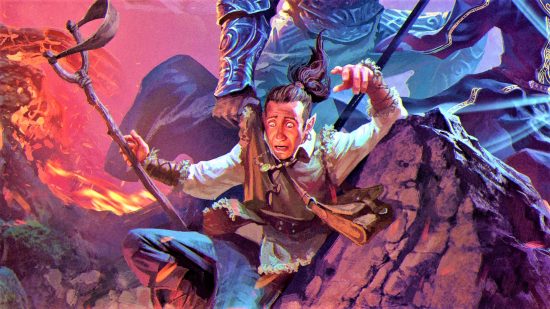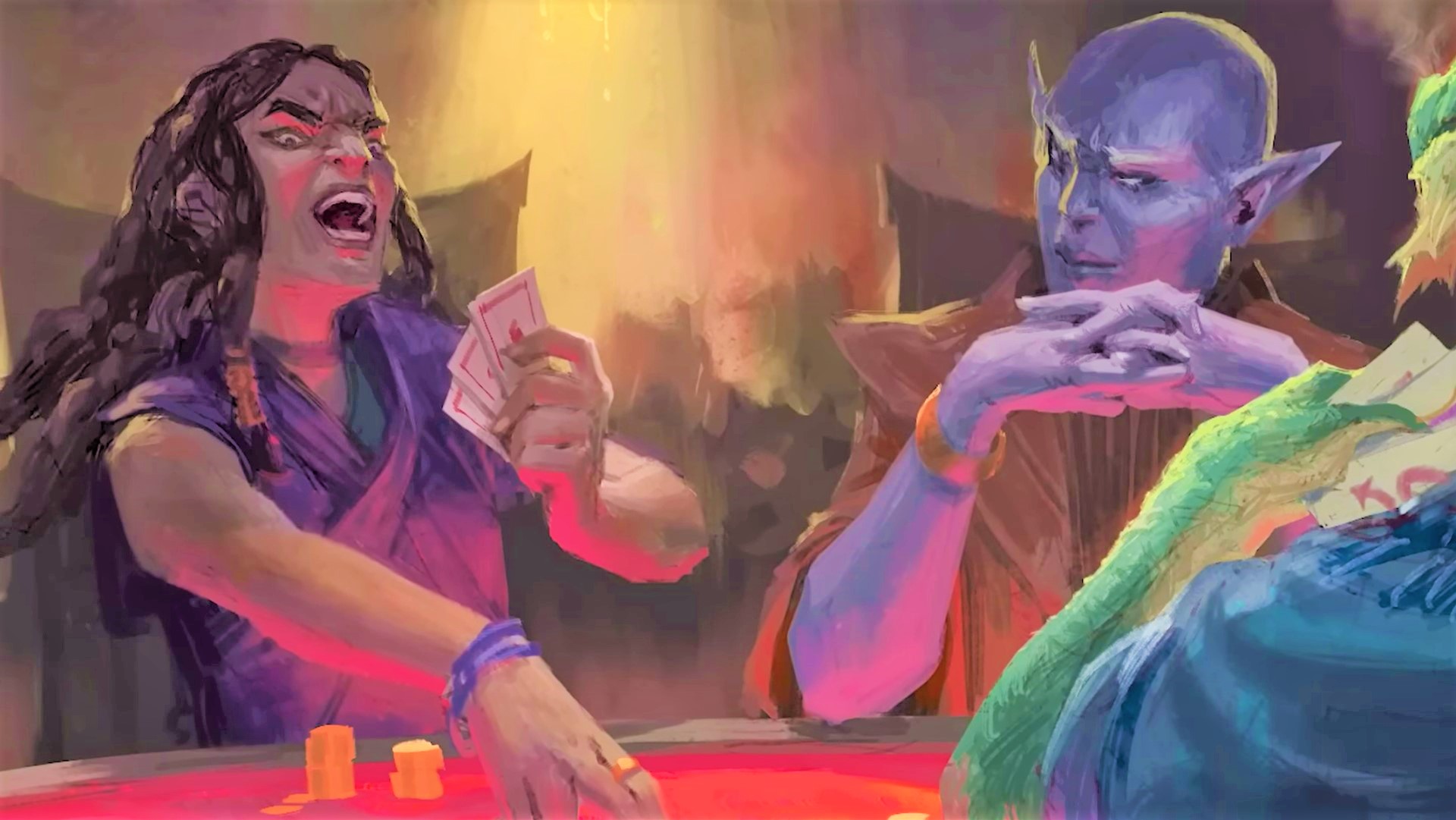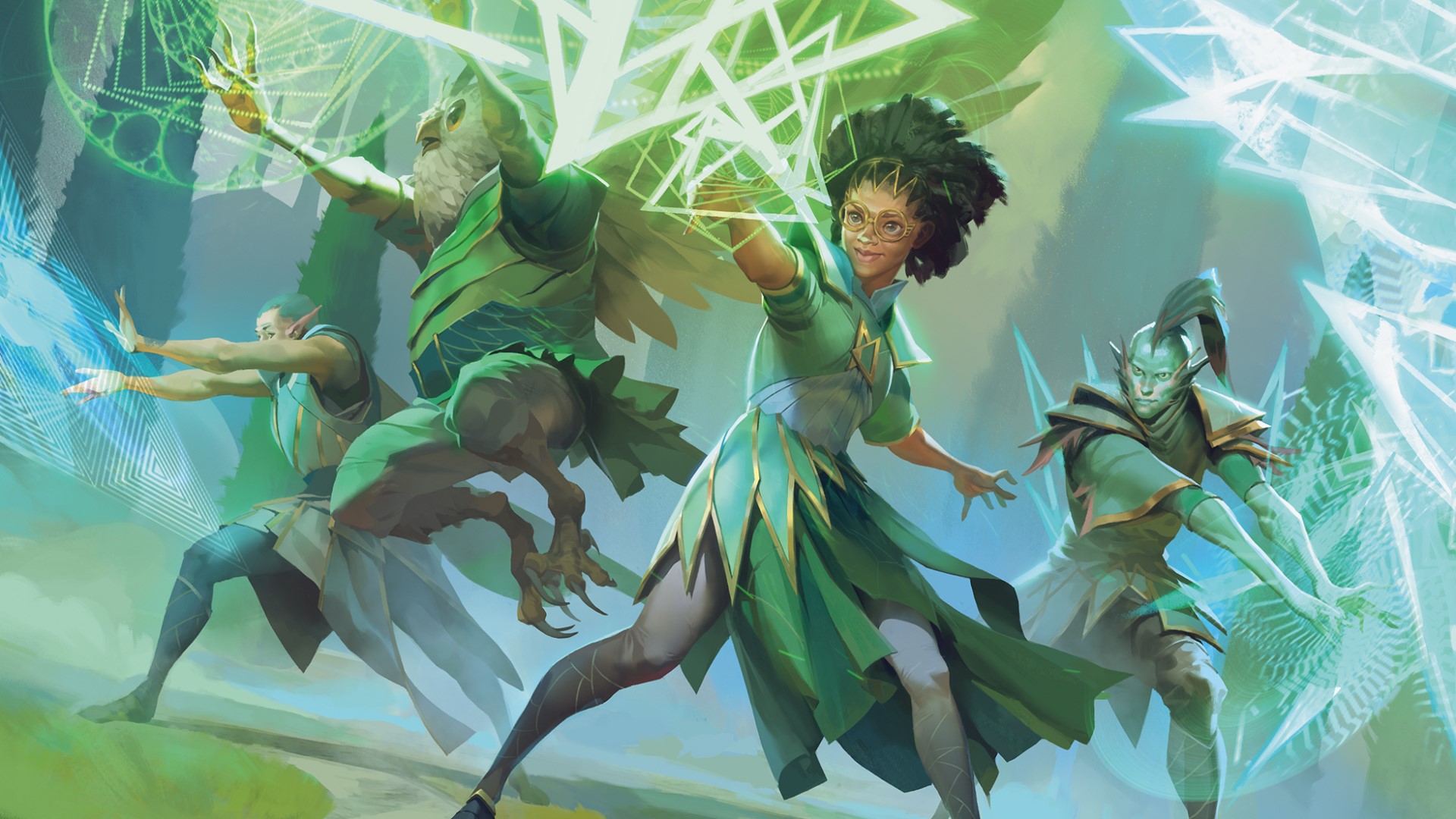Trust is a scarce resource for Wizards of the Coast lately. The DnD OGL 1.1 leak, which proposed highly restrictive changes to the Open Gaming Licence, led to public outcry, mainstream news coverage, and calls for boycotts. The company appears hard at work on damage control right now, scrambling to rebuild the community goodwill it lost. As well as cancelling DnD OGL changes and releasing the SRD under a Creative Commons licence, part of this cleanup project has been giving Wizards a human face: executive producer Kyle Brink.
Brink swooped in to deliver frank apologies when half-hearted, anonymous statements drew fan ire. He also joined TTRPG podcasters Three Black Halflings for an hour-long interview on February 6, offering some explanation for Wizards’ mistakes. He says Wizards never meant to restrict third-party RPG creators with its changes, and they became “accidental” “collateral damage” in a bid to protect the D&D brand from giants like Disney and Facebook. He adds more of the D&D creative team will be involved in discussions like OGL changes going forward, and current plans for One D&D are looking very Creative-Commons-friendly.
While Brink likely wanted to reassure the D&D fanbase, I left the interview feeling more sceptical. To me, it seems like Wizards’ plan to rebuild faith in D&D also involves sweeping the company’s faults under a rug.
In his closing statements, Brink had this to say to the D&D community: “You don’t need to have us at the table if you don’t want to; your game is for you. We’ll make stuff for it, and if you want it, we’ll be over here making it, and you can come and get it. But we should not be messing up your game. You shouldn’t need to trust Wizards of the Coast to play Dungeons and Dragons.”
I do believe Brink has good intentions. His previous statements show he understands that community is the heart of D&D, and on the surface, this seems like another attempt to communicate that, even when Wizards fumbles, the community keeps the game alive.
After all, your old DnD books don’t burst into flames when a new edition goes on sale; players are under no compulsion to keep buying the latest stuff; and – as we recently put it – the best part of DnD can’t be monetised. Dungeons and Dragons is a living entity apart from Wizards of the Coast, and Wizards acknowledging that can only be good, right?
However, in my eyes, there is a more sinister, corporate message hidden beneath the intent here: regardless of whether you trust Wizards, you should keep playing Dungeons and Dragons. You should keep spending money on and promoting the D&D brand.
As D&D fans, we are part of a community whose identity is largely tied to a consumer product. And Brink’s parting words smack of a classic ‘separating the art from the artist’ argument. Should you stop spending money on a product if you don’t trust the company making it? No, says he.
And me? I don’t believe a total boycott of D&D is the way forward in this situation, but I do believe in conscious consumption. The OGL reversion has proved that community action has a lot of impact. And Wizards has shown it’s willing to listen.
Plus, while Brink says the D&DBeyond boycotts didn’t directly cause Wizards to cancel the OGL changes, money does talk. Companies like Paizo and Chaosium have seen Pathfinder and Call of Cthulhu sales skyrocket since the scandal. Lovers of the wider tabletop industry have been trying to convince D&D players to try other systems for years, and thanks to the OGL leak, there might finally be a gap in the monopoly of cultural consciousness.
Wizards will act when it sees cracks in the walls of its kingdom. But in order for that to happen, it needs to see revolt brewing. Divorcing Wizards’ actions from the game itself, as Brink suggests, encourages complacency. Complacency is good for a company that wants to push forward plans that could hurt its community. Meaning that a high level of scepticism among D&D fans is bad for Wizards, but it can be good for the game.


